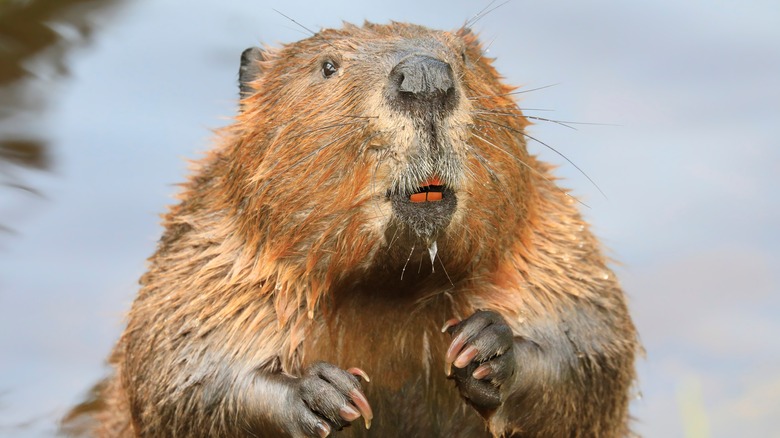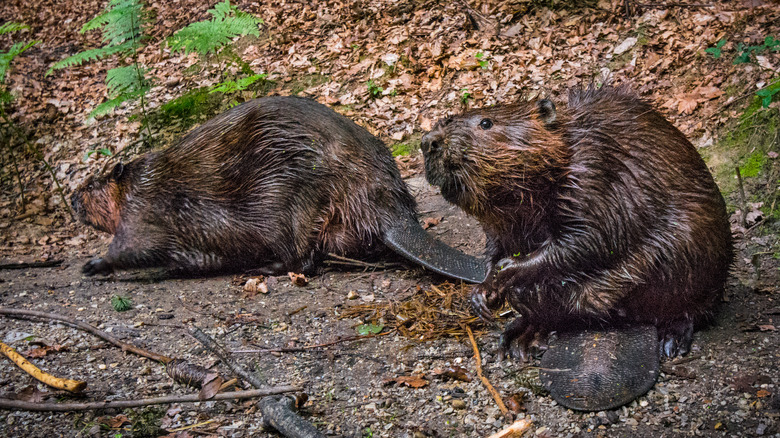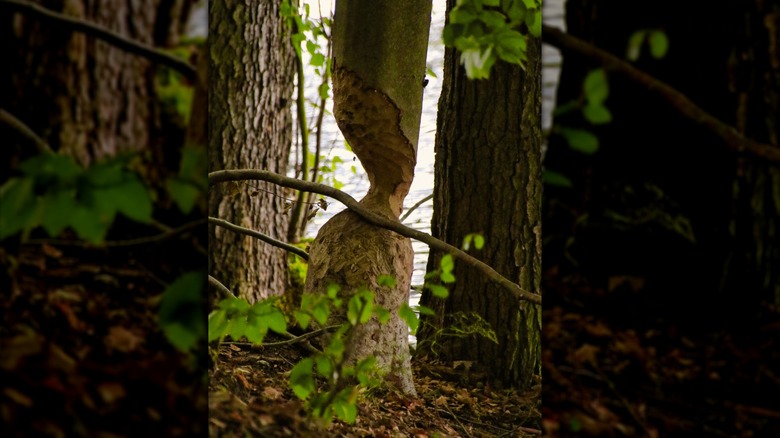How To Tell If A Beaver Is Going To Attack And What To Do
Beaver attack! Occasionally, a shocking story about a beaver attacking a person or a dog makes international headlines – but are beavers actually dangerous to people and their pets? These bizarre stories get a lot of publicity specifically because they're unusual. That doesn't mean we shouldn't treat them with respect, however. When they feel cornered, a beaver will defend themselves.
It's easy to tell when beavers live in an area. You will quickly notice trees and shrubs that the beaver has cut down with their large teeth and the big dams they have constructed in the water. If you want to see one, return to an area where you have seen signs of them at dusk or dawn, and approach quietly. If they smell or hear you, they will run away or go deep underwater and may stay there for up to 15 minutes. If you give them space, you may be able to watch these fascinating creatures in their natural environment. Be careful, though. They are wild animals, and may attack if they believe you are a threat. Never approach or touch a dam, or they may become territorial. Never corner a beaver on land, or they may think you are trying to hurt them. Here's how to know it's time to back off.
The beaver will warn you
The easiest way to avoid being attacked by a beaver is to leave them alone, but in general, you can safely observe beavers without worrying that they will attack you. However, like any other wild animal, they will defend themselves if they have to, and beavers are capable of seriously hurting you or your pets.
If you hear a loud splashing sound coming from the water, it might be a beaver slapping its tail against the surface. They do this as a warning to other beavers that a threat is approaching. While this is a sign that the beavers are fearful and are likely going to run away from you, it's worth being careful if you know the beavers are aware of your presence and see you as dangerous. If a beaver is on land, you should not approach it, because they may feel cornered if cut off from the water. Before they attack, they will rear up on their hind legs, hissing and growling. If this happens, get out of the way as fast as possible. The beaver may be about to lunge.
When a beaver attacks
Beaver attacks are extremely rare. While beavers are common in some areas, only around a dozen attacks have been reported in North America in the last decade. If they do attack, though, the consequences can be severe. They can cut through a thick tree trunk with their teeth – you don't want them biting you. If you are attacked by a beaver, get to shore and seek medical treatment immediately, even if the bite is small.
Humans approaching dams while swimming or boating can trigger a territorial response in beavers. In 2021, a man in Massachusetts was attacked while swimming in a pond where beavers live. At first he attempted to fight back, but the beaver kept attacking, and he was forced to swim back to shore as fast as possible. He was seriously injured, but was able to make it to a hospital. In 2013, a fisherman attempted to pick up a live beaver for a photo, and the beaver attacked, biting him multiple times. A major artery in the man's leg was cut, and he died before help could arrive.
Beaver attacks are more of a risk to dogs. If a dog is playing in the water, it may frighten nearby beavers, which are capable of doing serious damage or even killing pets. If owners notice beavers in the area that their dog is swimming they should get their dog out of the water immediately.
Rabies can make beavers aggressive
It is believed that most beaver attacks are caused by rabies. The disease causes them to act unusually and be more aggressive than usual. As noted by the CDC, it has even been reported to make beavers charge boats. Rabies is a risk to all mammals, including beavers and humans.
While beavers usually only attack when they feel cornered on land or when a person threatens their dams, rabid beavers are more likely to attack swimmers, and keep attacking even when the person fights back or tries to escape.
If you spot a beaver acting strangely, like being lethargic, dizzy and stumbling, walking in circles, or aggressively charging when it isn't under threat, you should get away from it and then contact local authorities. In the United States, you can contact the USDA at 1-866-487-3297. If you are bitten or even scratched, it's vital that you go to the hospital immediately for treatment, as rabies can be deadly.



